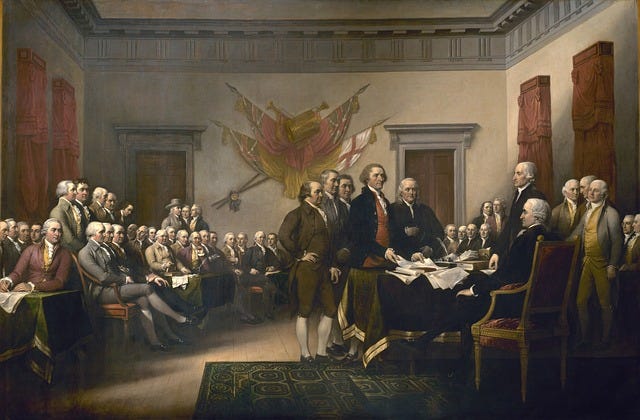Democracy is one of the most beautiful and difficult achievements in human history. It gives us the right to speak freely, to vote, to disagree without fear, and to choose how we want to live our lives. But it also requires something from us. It requires thoughtfulness, responsibility, and the courage to live with uncertainty.
Over the past few years, many of us have felt that something is wrong. We sense that our democracy is not as strong as it once was. People are angry, divided, and sometimes quick to follow leaders who promise simple answers. The truth is, democracy becomes fragile when people feel afraid or powerless. This is something the great psychologist Erich Fromm wrote about in his book Escape from Freedom. He explained that while freedom is precious, it can also be scary. When life feels uncertain or out of control, people may give up their freedom and put their trust in someone who seems strong and confident, even if that person is dangerous to democracy.
Fromm wasn't the only one to understand these fears. Long before him, several great thinkers laid the foundation for modern democracy. Each one had a unique view, but together they help us understand how government is supposed to work and what happens when it doesn't.
John Locke believed that all people are born with natural rights, like the right to life, liberty, and property. According to Locke, governments exist to protect these rights. If a government fails to do so, he said, people have the right to change it. Locke's ideas strongly influenced the American Declaration of Independence.
Montesquieu believed that the best way to protect freedom was to divide government power into three branches, which are the legislative, executive, and judicial. This way, no single part of government could become too powerful. He called it the separation of powers, and it became one of the most important ideas in building the United States Constitution.
Jean-Jacques Rousseau believed that true democracy comes from the will of the people. He said governments must reflect what the people want, not just what rulers or elites decide. He believed in community, equality, and mutual respect.
These thinkers didn't agree on everything, but together they gave us a vision of democracy as fair, protective of our rights, and grounded in shared responsibility. They warned that when governments become too powerful or when citizens stop participating, democracy begins to fall apart.
And this brings us back to Erich Fromm. He warned that when people feel lonely, anxious, or powerless, they sometimes stop thinking for themselves. They may follow a leader blindly, conform to the crowd, or try to destroy what scares them. These are the ways people "escape from freedom." Fromm believed that the only way to protect freedom is to learn how to use it wisely, with care and compassion for others.
Right now, we must ask ourselves hard questions. Are we thinking for ourselves or being swept up in fear and anger? Are we protecting each other's rights, or only our own? Are we choosing truth, or just comfort?
Democracy is not automatic. It depends on each of us. It requires honesty, courage, and the willingness to live with people who think and believe differently. We do not need to agree on everything, but we need to stay awake, listen, and care.
History has taught us that freedom can be lost not only by force but also by fear and ignorance. And if we are not careful, we may one day look back and wonder how it slipped away.









I think that The USA has a complicated voting system that does not accurately reflect the will of its citizens, given that the popular vote isn’t the one that counts. The Constitution altered the British path of democratic rule where the vote of a citizen counts. This system functions well in many countries alongside Britain.
Another important consideration in the democratic process is some measure of socialization to support citizens. Universal health care paid through taxation is one system that offers support to citizens. Many countries that follow the British democratic governing method offer this along with some old age financial security. All citizens benefit from this support. The Nordic countries offer more extensive coverage for their citizens through high taxation. These governments benefit each member of society. In the USA many citizens are floundering, unsupported by their government. This leads to anger, resentment, broken democracy.
Is it the Constitution itself that has led the path to this fragmented society, along with the greed of the higher echelons?
Thank you for this thoughtful, well-researched article. Permit me to add a few ideas.
If we look at the ultimate disaster, the USA has apparently lost its "democracy" -- not that the perverse duopoly it had as a system of government was necessarily democratic or reflective of the "will of the people." What other factors (psychological and otherwise) propelled such a perverse authoritarian into the Oval Office?
I would point to similarities to Hitler's Germany: (1) the cynical but skillful creation of the "other," by whom we mean those who are of a different race, religion, ethnicity, or ideological belief; (2) the psychological need to be "better than everyone" (or "Number One," if you prefer); (3) a system of "justice" that moves too slowly: i.e., if the facts run against you, you can argue the law, and if the law runs against you, you can argue technicalities, and if you lose, there are endless appeals; and (4) total corruption of the media by corporate interests.
With all due respect to Locke, Montesquieu, and Rousseau, I doubt that they could ever have imagined Fox "News," the internet, or such a pathetic failure of the US Constitution. At least in some other parts of the world where neofascists have gained power (e.g., Italy), there are faint hopes of removing them. Here, a single issue -- Gaza -- may well have cost the Democrats the election, and unless the courts show some spine, there will be no way to stop the transformation to an authoritarian state -- one which, like Germany and Italy -- will have strong popular support (at least initially).